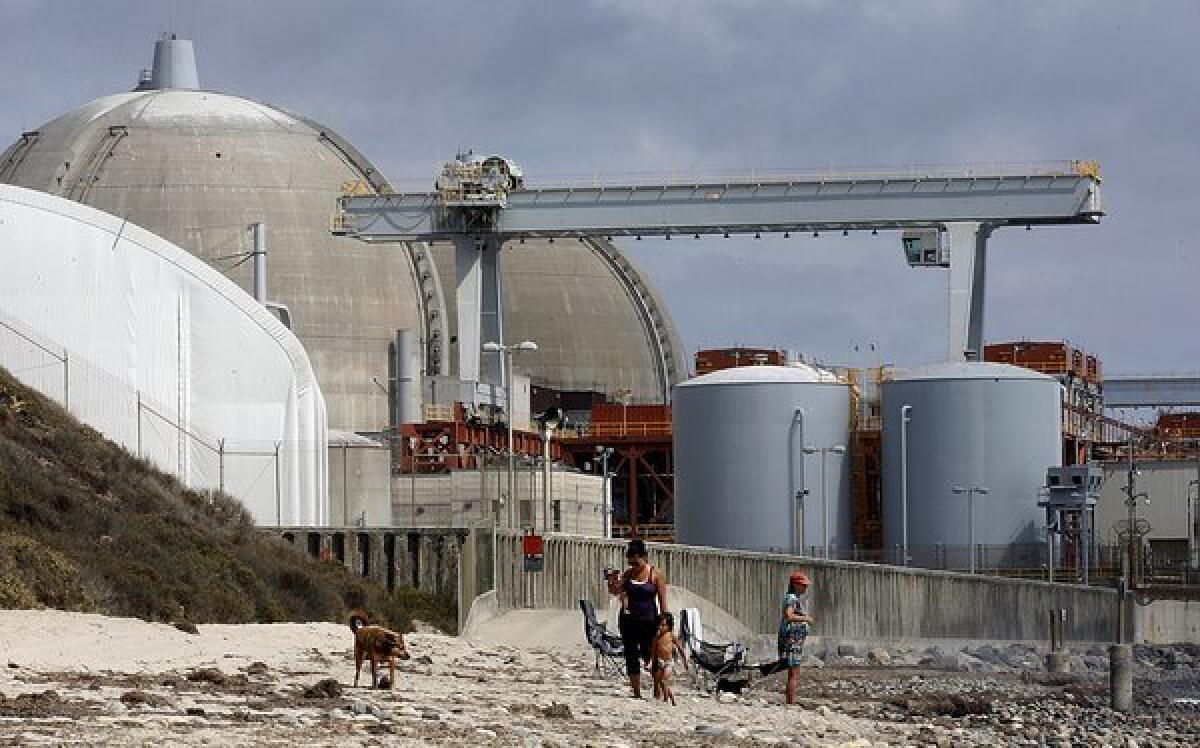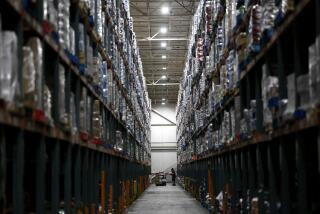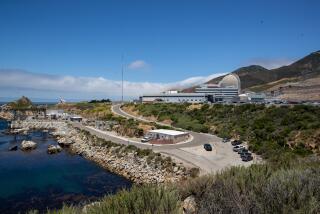Decision on San Onofre pushed back to June at the earliest

The head of the U.S. Nuclear Regulatory Commission said Tuesday that the agency will not make a decision on whether to restart the troubled San Onofre nuclear plant until late June at the earliest.
The timeline for the plant has been pushed back repeatedly.
The plant’s operator Southern California Edison had hoped at one point to have one of the plant’s two units operating by summer, but NRC Chairwoman Allison Macfarlane made it clear that will not happen.
Macfarlane told reporters Tuesday after a speech, “You know, the process is very complicated now. Almost every day it gets a little more complicated.... Right now I can tell you a decision on restart won’t happen until the end of June, certainly after the middle of June.
“It may get pushed back later,” she said. “I don’t know.”
Macfarlane declined to wade into a debate over the meaning of a decision issued Monday by a panel of NRC administrative judges who were tasked with deciding the fate of a petition filed by environmental group Friends of the Earth.
The group argued that Edison must go through a wide-ranging license amendment process, including trial-like public hearings before the NRC can allow the plant to restart.
The judges found that the regulatory processes surrounding the plant’s outage constitute a “de facto license amendment” process that is “subject to a hearing opportunity,” but did not specify when or how the hearings should happen, leading to a debate over whether the hearings would have to take place before the plant can restart.
Macfarlane avoided making a definitive statement on that question Tuesday.
“There are potential opportunities for public hearings,” she said. “At this point in time I know there is strong public sentiment for a public hearing prior to relicensing, and I understand the concerns the folks who want that have, but there’s multiple moving parts.”
Meanwhile, a first round of hearings began this week in San Francisco in a California Public Utilities Commission investigation of the costs to ratepayers from the plant’s outage, which could eventually lead to rates being lowered.
Administrative judges initially angered activists by not allowing videotaping of the proceedings, but later agreed to post a webcast of the hearings.
The nuclear plant was powered down in January 2012 after a tube in the plant’s newly replaced steam generators sprung a leak and released a small amount of radioactive steam.
The incident led to the discovery that the tubes were wearing out much more quickly than expected.
ALSO:
Father of Leila Fowler’s brother says he stands with son
Woman sentenced to prison in surrogate parenting scheme
Kelly Thomas’ father ‘totally disgusted’ by Kern County beating
Twitter: @sewella
More to Read
Sign up for Essential California
The most important California stories and recommendations in your inbox every morning.
You may occasionally receive promotional content from the Los Angeles Times.











